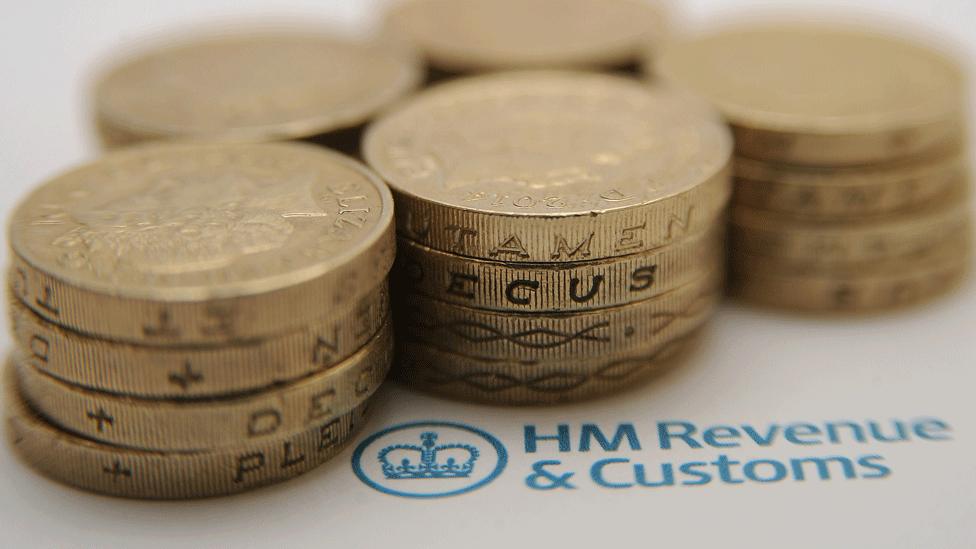Party leaders trade barbs in Holyrood election debate
- Published
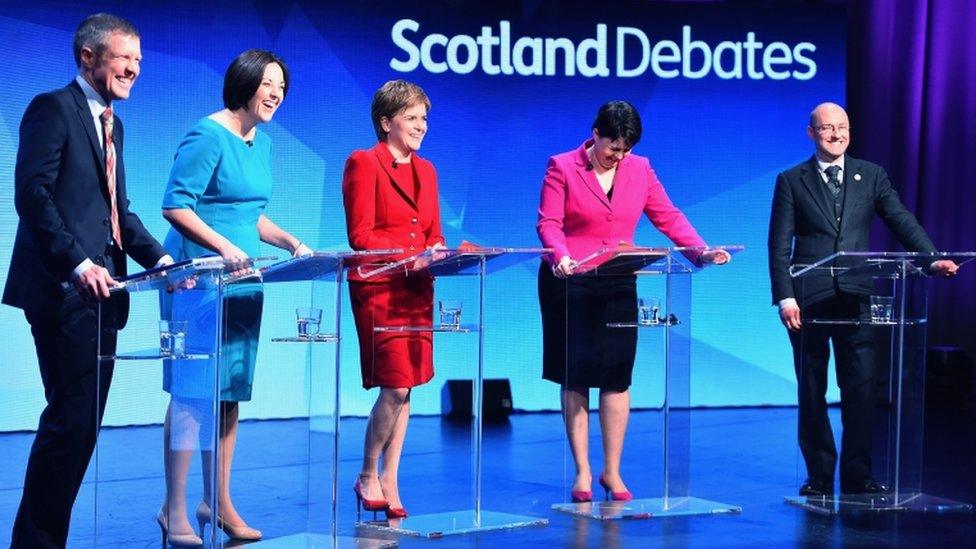
The five Holyrood party leaders fielded questions from the audience and quizzed each other during the live debate
Scotland's political leaders cross-examined each other in the latest Holyrood election debate.
SNP leader Nicola Sturgeon, Labour's Kezia Dugdale, Conservative Ruth Davidson, Lib Dem Willie Rennie and Green Patrick Harvie took turns to quiz each other during the STV debate.
They also took questions from the audience on issues including tax, the budget, healthcare and education.
Further debates are to be held ahead of the Holyrood election on 5 May.
The five leaders clashed for the second time in a week, following a BBC debate alongside UKIP Scotland leader David Coburn.
Mr Coburn was not present at the STV debate, and his attempt to chip in his views through social media via a live streaming app was largely thwarted by technical difficulties.
Tax, an early point of contention in the election campaigns, was the first issue to be discussed, with Ms Sturgeon defending her plans as "fair", noting she was attacked as being both too timid and too radical.
Ms Dugdale, who wants to raise the top rate of income tax to 50p, said the SNP leader "won't ask rich people to pay a penny more", while Patrick Harvie, who backs a top rate of 60p, said there could not be a "status quo tax policy".
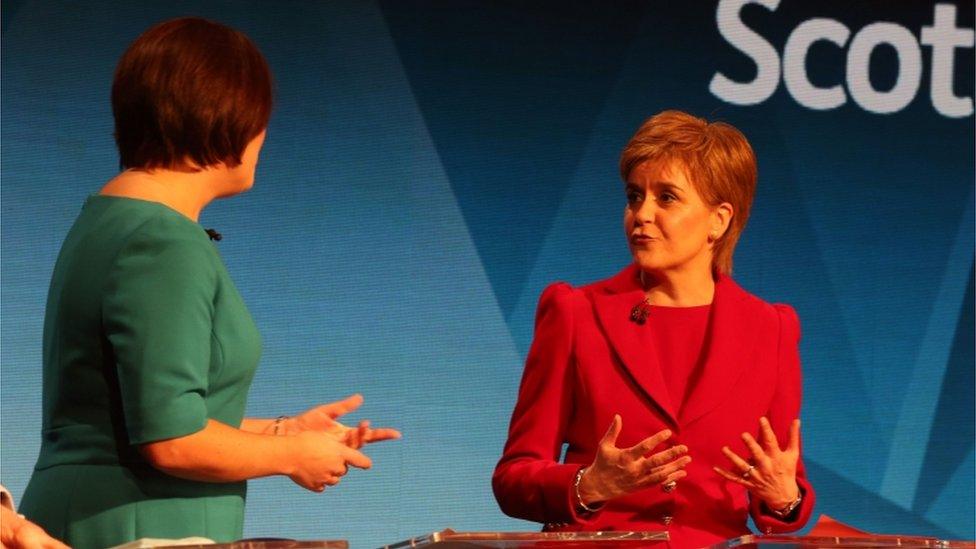
Ms Sturgeon and Ms Dugdale clashed over their parties tax policies
Meanwhile, Ms Davidson said it it was "not in the national interest" to have higher taxes in Scotland than in the rest of the UK, and argued that taxes should be about raising money for public services not "punishing people who earn money".
Mr Rennie, whose Liberal Democrats back adding 1p to all income tax bands, added: "Nicola Sturgeon has bellyached about austerity and when she finally gets the chance to do something about it she is frozen to the spot, she's not seizing the opportunity to do something radical, transformational."
Cross examination
The key exchanges came when each party leader was singled out to be questioned by a panel of their opponents.
Ms Davidson came under fire from Ms Sturgeon over Conservative proposals to end free prescriptions and university tuition fees in Scotland.
She said her party would charge students "just over £1,500 a year" for university tuition, to be paid after graduation, and said they wanted to "phase" in prescription charges to a level of "about £8". Ms Sturgeon claimed this made the Tories "the party of hidden taxes".
Ms Davidson hit back that the "cost of university education is 152,000 college places, the cost is the fact that poor people in Scotland are half as likely to be able to get into university as south of the border".
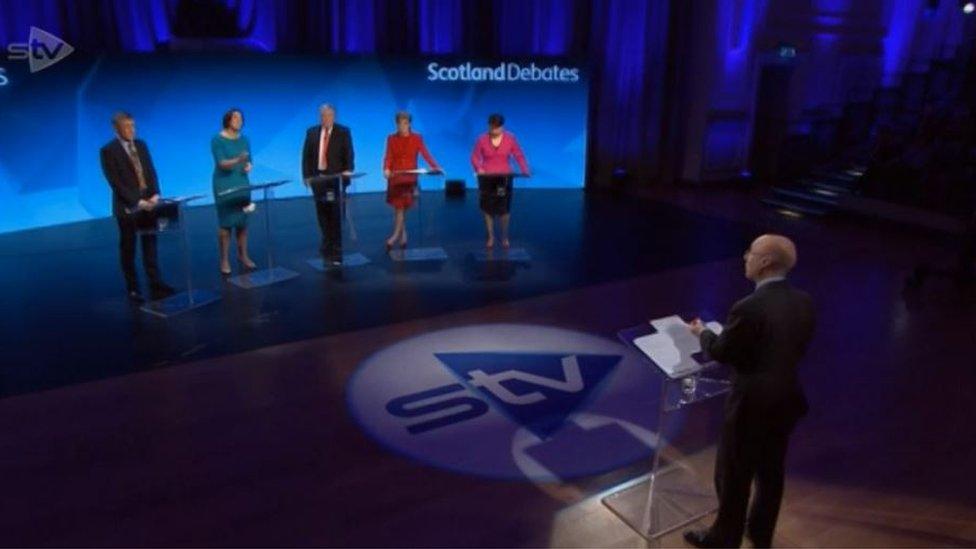
One part of the debate format saw each leader cross-examined by the other candidates
When it came to her turn, Ms Dugdale was questioned on Labour's decision to stand "shoulder to shoulder" with the Conservatives during the 2014 Scottish independence campaign, with Ms Sturgeon asking her to "apologise".
Ms Dugdale said she did not regret voting No and said she would do so again.
Ms Sturgeon's turn to be questioned also featured constitutional exchanges, with Ms Davidson asking her how her plans to build a new case for independence could possibly be seen as respecting the outcome of the referendum.
Ms Sturgeon said she believed that Scotland would become independent within her lifetime and said she needed to persuade more people of that "over the months and years to come".
During Mr Rennie's questioning, he said Ms Sturgeon should be "embarrassed" by her government's record on education, but was attacked by the other party leaders over the Liberal Democrats "propping up" the Conservatives at Westminster from 2010 to 2015.
Ms Davidson also attacked the Liberal Democrats for "flip flopping" on issues including tax and fracking, and quizzed Green party co-convenor Mr Harvie on how he planned to grow Scotland's economy while raising taxes.
Mr Harvie said he would not "shed a tear" at the rich having to pay more in taxes, and said more needed to be invested in sustainable renewable industries.
Constitutional question
The closing stages of the debate were also concerned with Scottish independence, with audience members and host Bernard Ponsonby pressing Ms Sturgeon on what the SNP's manifesto will have to say on the topic.
She said she would not reveal the exact wording, but promised to put the issue "in the hands of the people", arguing it would not be fair for her to rule out another referendum.
Ms Dugdale, who said the case for independence had "fallen apart", said Labour's manifesto would rule out another vote on the matter during the next parliament.
Ms Davidson said the SNP leader would "keep Scotland on a knife-edge", which she said was "shameful", and called on her to apologise for not "respecting" the outcome of the 2014 vote.
- Published29 March 2016
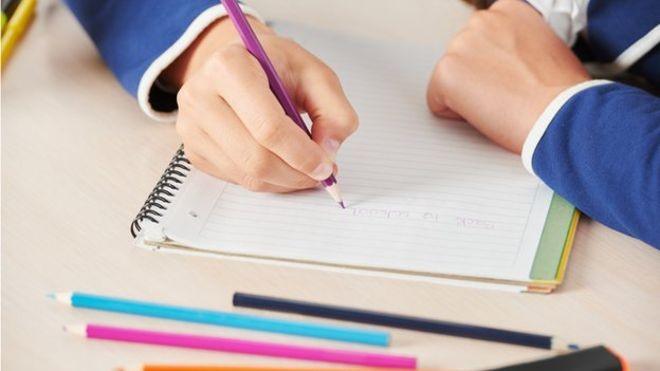
- Published29 March 2016
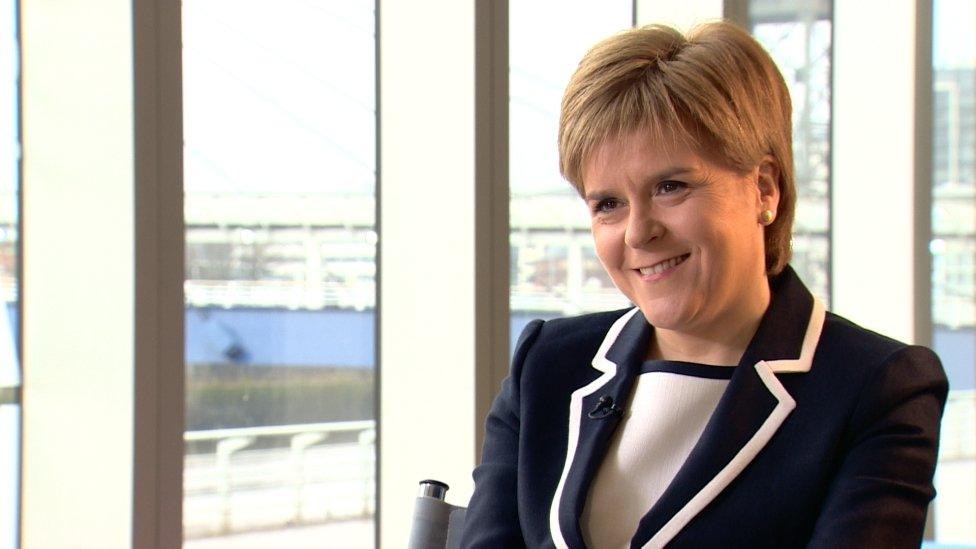
- Published24 March 2016
